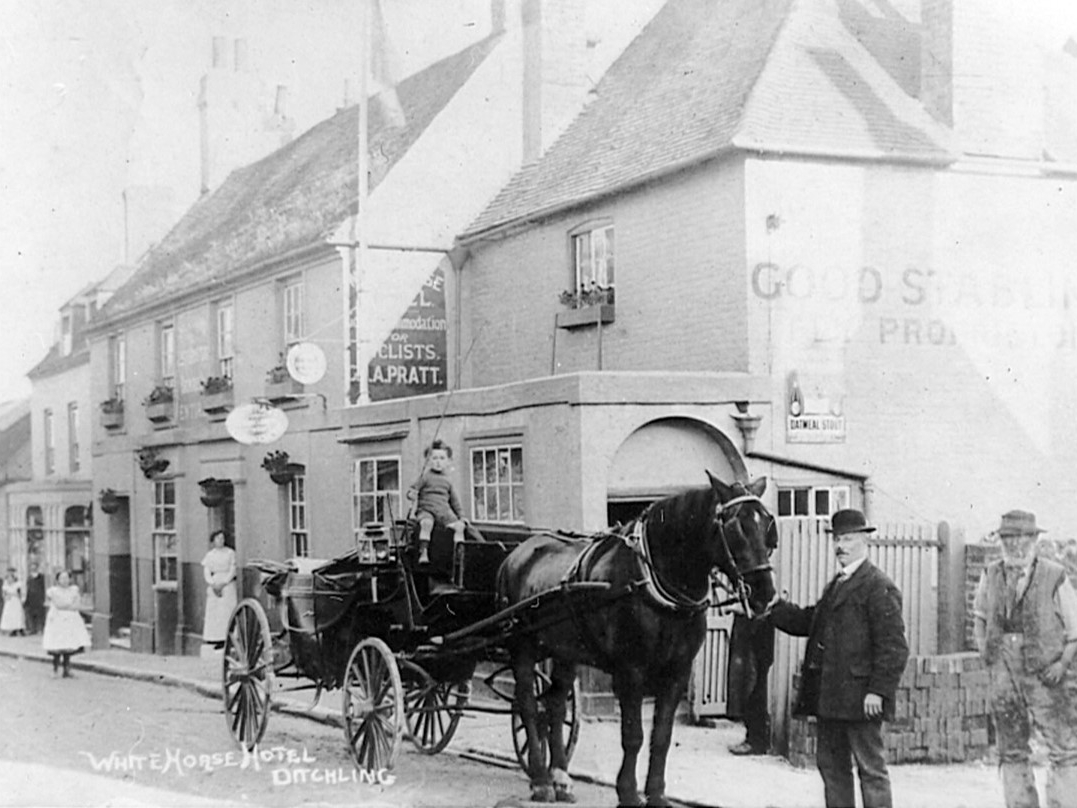THEN AND NOW ... pubs
Pubs and Inns have long been at the centre of our communities, but in previous centuries they were multi-purpose smoke-filled venues where men, and it was usually men, would conduct serious business which could have a profound impact on the welfare of the community and individuals. As recently as the 1980s there were five pubs in the parish: The Bull; The White Horse; The Sandrock; The North Star; and The Royal Oak on the Common. Now only the first two remain.
An article by Tom Dufty first published in the Ditchling Parish Council Magazine, February 2020

THEN ...
Click on this text to start editing, and enter your own text with some basic formatting. To create a link to another page or website within this section, select the text you want to make into a link and click on the Link icon on the formatting toolbar. Click anywhere outside the text box when you're done to continue working on the rest of your page.
At a time when there was no state health insurance or welfare benefits, mutual aid organisations known as Friendly Societies were created to enable people to contribute voluntarily to a common financial fund. On the occasion of illness or death, a benefit as a right, not a charity, would be available to meet immediate needs. The majority of societies started as locally based groups, usually a few villagers or neighbours, where members would contribute a small monthly payment so that they could receive a lump sum payment at the time of need. In many societies this was underpinned by a strong element of self-management and social activity. The Bull was the venue for meetings of 'The Friendly Benefit Society', founded in 1754 while the The White Horse was the venue for another Benefit Society, the 'Foresters Court Star', established in 1859.
The Bull was also the venue for 'The Society for the Prosecution of Thieves' which was formed in the late 18th century. This was a kind of neighbourhood watch when landowners got together to swap information, to bribe informers and to bring prosecutions for poaching and other forms of criminality. It was also the venue for a monthly club of farmers and landowners to meet to "sell all sorts of corn seeds", until, in 1822, the Ditchling Horticultural Society was formally constituted at a meeting here. It now lays claim to being the oldest horticultural society in the country.
For many decades starting in the 1880s The White Horse was the HQ for meetings of the Ditchling Fire Brigade partly because the innkeeper was the Captain, although its pumps were housed elsewhere. However The White Horse was also where you went to let your hair down after a hard day of business! For that we have the testimony of John Burgess, a glover and much else besides, who wrote in his 'Jernel' in 1786:
"After a good days selling, went to ye White Horse had 2 pints of beer"
Both The Bull and The White Horse served as venues for inquests. In the late 19th century The latter was the venue for a well publicised inquest into the suicide of a local woman whose body was found on the water's edge at Pond Green.
NOW ...
Click on this text to start editing, and enter your own text with some basic formatting. To create a link to another page or website within this section, select the text you want to make into a link and click on the Link icon on the formatting toolbar. Click anywhere outside the text box when you're done to continue working on the rest of your page.
Today we tend to think of pubs primarily as places to chill-out, to converse, to eat, or, maybe, to hold a common-interest meeting in an informal setting. Some business is still conducted in them but perhaps not with such serious consequences for the welfare of the community and individuals. Now there are public buildings often dedicated to such purposes. Both remaining pubs host regular pensioner reunion functions. The White Horse hosts Ditchling History Project's monthly open afternoons. The village cricket and football clubs meet there as do the Parent Teachers Association and the Bassett Hounds Club.